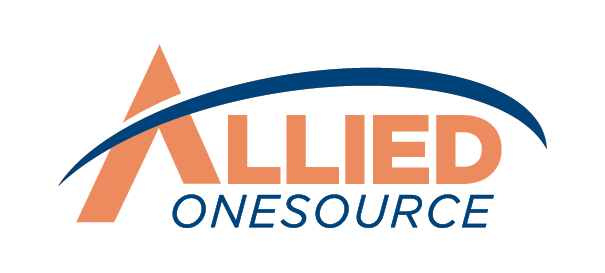Understanding the Value You're Adding to Your Company
Job security is key in today’s competitive job market. Understanding the value you bring to your company is essential to stability and career advancement. When you actively contribute to the success of your organization, you protect your position and create opportunities for capital and career advancement.
Employers appreciate employees who make a difference. Making your impact known boosts your reputation and opens doors for growth. Whether you’re starting out or rising through the ranks, acknowledging and affirming your worth is critical to your personal satisfaction and career growth.
Exceeding Expectations: The Foundation for Adding Value to a Company
The initial question you might consider is, "What value can I contribute to the company?" However, before diving into that question, it's important to first ask: "Am I meeting the minimum expectations or requirements for my position?"
Regrettably, research findings indicate that a number of employees aren’t fully aware of the expectations set for them.1
- Only 21 percent of employees stated they consistently understood their employer's expectations regarding performance evaluations.
- Two out of every five employees occasionally, seldom, or never have a clear understanding of their employer's performance expectations.
- Less than one in four employees stated they had clear performance expectations for their role, and less than one in five understood what was expected of their team or department.
These figures are concerning, indicating that many employees are uncertain about meeting the expected standards while working daily.
If you're unsure about your responsibilities, it's crucial to discuss them with your manager beforehand. Clarify your regular tasks and any additional duties, ensuring they align with company goals. Consistently meeting expectations builds trust and credibility, enhancing your reputation and potentially leading to career advancement opportunities.
Understanding the Significance of Adding Value to Your Company
Each person in an organization brings unique skills and perspectives that contribute to its success. However, these contributions may not always be obvious, particularly in large or complex teams. It's crucial to reflect on how your actions and expertise directly influence the company's goals.
Here are some key questions to consider:
- What are my primary responsibilities? Understanding your job role and its significance within the broader context of the company's operations is fundamental.
- How do my actions align with the company's objectives? Evaluate whether your daily tasks and projects contribute directly or indirectly to achieving the company's goals.
- What unique skills or knowledge do I bring to the table? Identify your strengths and areas where you excel, as these are likely valuable assets to your organization.
- Have I received positive feedback or recognition for my work? Feedback from colleagues, supervisors, or clients can provide insights into the impact of your contributions.
Read More: Elevate Your Career: 10 In-Demand Tech Skills for 2024
On a personal level, if you're already performing well in your job, what's the motivation for seeking ways to go above and beyond? One important aspect is that increasing your value can lead to career growth. The more you contribute value, the more opportunities you're likely to encounter for career advancement and professional development.
- Positive reputation: Consistently delivering high-quality work and making significant contributions, establishes a positive reputation for reliability, competence, and dedication. This reputation can serve as a strong foundation for your career growth.
- Increased visibility: As you continue to add value, you're likely to become more visible and respected within the organization. This leads to greater opportunities for advancement, whether through promotions to higher positions or by being considered for new projects or responsibilities.
- Job security: In economic uncertainty or organizational change, employees who have consistently demonstrated their value are often viewed as indispensable assets. This can provide a sense of job security, as your skills and contributions are highly valued by the company.
Employee Initiatives for Enhancing Organizational Value
Adding value to your company becomes manageable when you understand what actions to take. Here are specific steps you can implement, regardless of your current job role:
Support the company in increasing its revenue.
You don't necessarily have to directly generate sales to contribute to your organization's financial success. Regardless of your position, your efforts can positively impact the company's profitability.
Here are some suggestions to consider:
- Expand your professional connections. Participating in conferences and networking events strengthens your visibility in the market. Networking is particularly valuable in niche or specialized markets.
- Build a positive reputation. Maintain strong relationships with customers or clients, as their experiences influence their perception of your brand. Satisfied customers tend to stay loyal. Also, nurturing relationships with suppliers can result in cost savings and support achieving strategic objectives.
- Seek chances for innovation. Seek out opportunities for innovation by exploring new product ideas or improvements to existing services. Act on promising suggestions to drive progress and differentiation in the market.
- Be a brand advocate. Share information about your organization with your social circle and online contacts, highlighting its strengths and services. This can raise awareness and attract potential leads. Even if your immediate connections do not require your company's services, they may recommend others who do.
Read More: The Power of Continuous Learning: Invest in Your Professional Growth
Implement strategies for reducing costs.
When your company reduces its expenses, it boosts its profitability. You can achieve cost reduction by using fewer resources, enhancing productivity, and ensuring your skills are up-to-date, thereby optimizing operational efficiency for the business.
For instance, you could:
- Identify opportunities for reducing costs. Evaluate suppliers, sourcing more affordable materials, or renegotiating contracts. Consider researching cheaper travel options, finding more cost-effective training methods, or reducing expenses on utilities and materials. Even small savings can accumulate over time.
- Streamline your processes to improve efficiency. Focus on improving time management or allowing your team to "work smarter." This might involve mapping workflows, introducing new software, or conducting more effective meetings.
- Conduct a skills audit to identify any gaps in knowledge within your team. Consider any additional skills that are currently underutilized. For example, if you have completed a graphic design course but are not using these skills in your current role, explore opportunities to use them elsewhere in the company.
- Promote a learning culture within your organization. Take advantage of formal training opportunities provided by the company and consider organizing informal sessions such as "lunch and learns." This could involve sharing industry knowledge, providing feedback on recent projects, or helping colleagues develop their IT skills.
Set the bar high.
Go beyond basic expectations to add value to your role. This might include prioritizing tasks that align with company goals and proactively seizing opportunities as they arise, whether it's solving problems, assisting colleagues, or taking on unpopular tasks.
Seek to challenge yourself by building skills outside your comfort zone. Communicate your efforts with managers, emphasizing contributions that motivate your team and drive the company's success. Adding value requires looking beyond your job description to pursue initiatives that boost team performance and organizational objectives.
Lastly, don't hesitate to communicate your efforts to add value to your role with your managers. Develop your personal brand and utilize one-on-one meetings and performance evaluations to emphasize your positive contributions.
Read More: Disengaged at Work? 6 Tips on Reigniting Workplace Motivation
LET ALLIED ONESOURCE HELP YOU EMBRACE YOUR ROLE AS A VALUABLE ASSET TO THE ORGANIZATION
Drawing from our legacy dating back to 1898, Allied OneSource stands as one of the oldest and most established staffing and recruiting companies in the country. With this deep-rooted history, our comprehensive resources and expertise provide the support you need to excel and deliver substantial value to your organization.
Reach out to us today, and let's work together to achieve success and drive value for both you and the organizations you serve.
Reference
1 Thomson, Victoria CIPD. "Ambridge Awareness: Shining a Light through the Fog of HR." LinkedIn, 31 July 2023, https://www.linkedin.com/pulse/ambridge-awareness-shining-light-through-fog-hr-victoria-thomson-cipd/.











